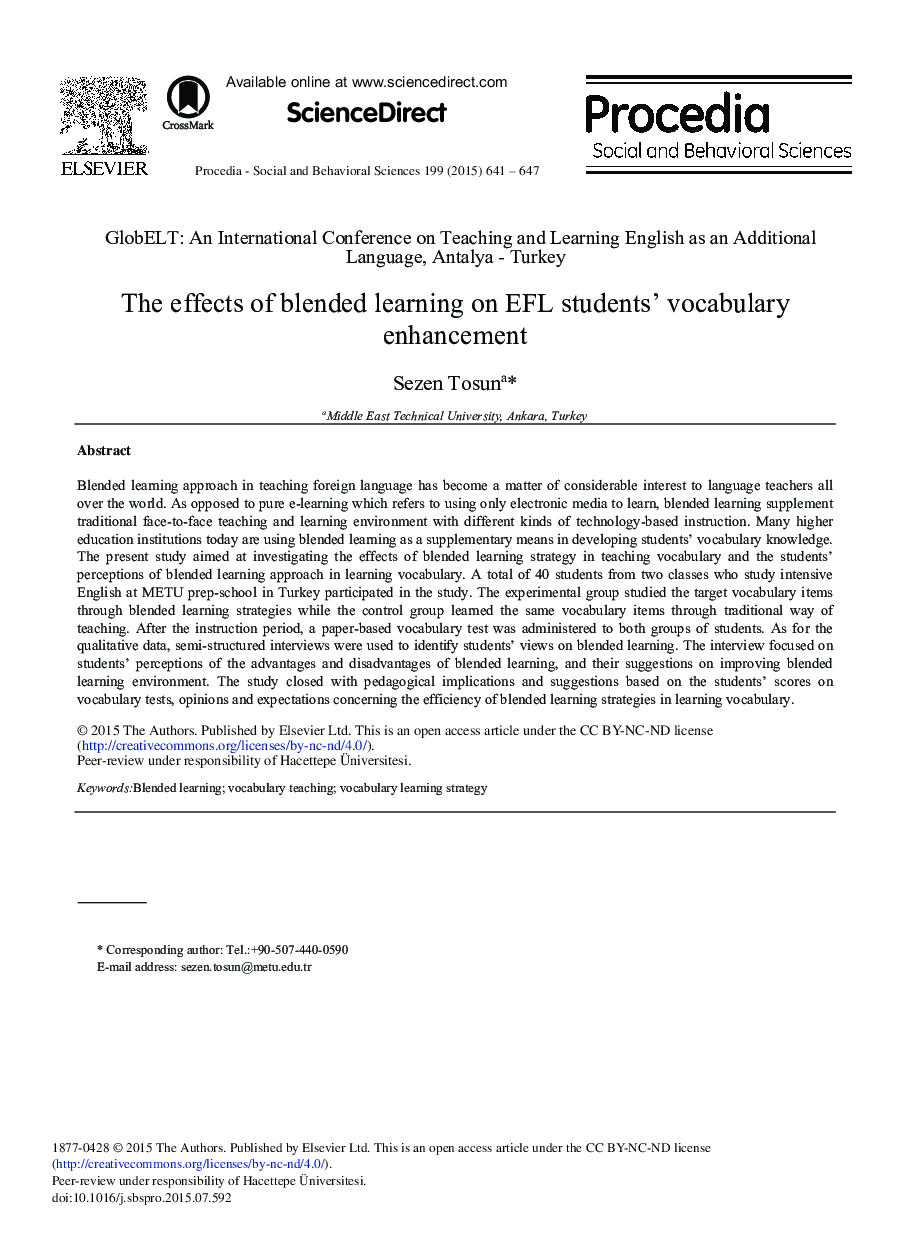| Article ID | Journal | Published Year | Pages | File Type |
|---|---|---|---|---|
| 1109836 | Procedia - Social and Behavioral Sciences | 2015 | 7 Pages |
Blended learning approach in teaching foreign language has become a matter of considerable interest to language teachers all over the world. As opposed to pure e-learning which refers to using only electronic media to learn, blended learning supplement traditional face-to-face teaching and learning environment with different kinds of technology-based instruction. Many higher education institutions today are using blended learning as a supplementary means in developing students’ vocabulary knowledge. The present study aimed at investigating the effects of blended learning strategy in teaching vocabulary and the students’ perceptions of blended learning approach in learning vocabulary. A total of 40 students from two classes who study intensive English at METU prep-school in Turkey participated in the study. The experimental group studied the target vocabulary items through blended learning strategies while the control group learned the same vocabulary items through traditional way of teaching. After the instruction period, a paper-based vocabulary test was administered to both groups of students. As for the qualitative data, semi-structured interviews were used to identify students’ views on blended learning. The interview focused on students’ perceptions of the advantages and disadvantages of blended learning, and their suggestions on improving blended learning environment. The study closed with pedagogical implications and suggestions based on the students’ scores on vocabulary tests, opinions and expectations concerning the efficiency of blended learning strategies in learning vocabulary.
